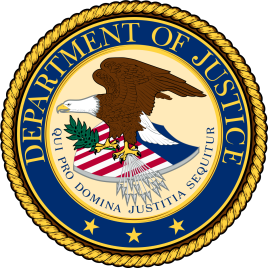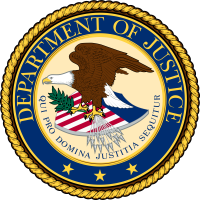DOJ Sues CVS, Claiming It Knowingly Filled Illicit Rxs for Controlled Substances Over 11 Years

In a consolidated complaint in intervention unsealed Dec. 18, the Department of Justice (DOJ) alleged that over the past 11 years CVS Pharmacy Inc. and a number of the company’s subsidies have filled unlawful prescriptions for opioids and other controlled substances in violation of the Controlled Substances Act (CSA) and sought reimbursement for the prescriptions from federal health care programs in violation of the False Claims Act (United States ex rel. Estright v. CVS Pharmacy, Inc., No. 1:22-cv-00222-WES-PAS (D.R.I.)).
Through its actions, the government said, CVS “contributed to the opioid crisis.”
In its original complaint, filed Dec. 13 in the U.S. District Court for the District of Rhode Island, the DOJ noted that CVS is the largest pharmacy chain in the United States, operating over 9,000 pharmacies and filling more than a billion prescriptions each year.
“CVS is among the top dispensers of opioids in the United States,” the department also told the court. “Between 2015 and 2020, CVS sold over 12 billion doses of opioids in the United States, many of which were paid for by federal health care programs.”
Since October 2013, the government alleged in the suit, CVS has “routinely dispensed controlled substances pursuant to prescriptions that were not valid, were not for a medically accepted indication, were not medically necessary, and/or were not issued in the usual course of professional practice.”
The company dispensed “illegitimate prescriptions for extremely high doses and excessive quantities of potent opioids that fed dependence and addiction,” the DOJ alleged, “as well as illegitimate prescriptions for dangerous combinations of opioids and other drugs.”
Among the illicit prescriptions filled by CVS were the following, according to the government:
- prescriptions for dangerous and excessive quantities of opioids;
- early fills of opioids; and
- the “especially dangerous and abused” trinity combination of an opioid, a benzodiazepine and a muscle relaxant.
The DOJ also alleged that CVS allegedly filled large quantities of prescriptions for controlled substances that had been written by prescribers it knew to be engaged in pill mill practices, issuing large numbers of controlled substance prescriptions without any medical purpose.
In the complaint, the government also said that CVS ignored “substantial evidence from multiple sources” — including evidence provided by internal data and its own pharmacists that its stores were dispensing unlawful prescriptions.
Alleged Corporate Practices
According to the government, instead of ensuring compliance with its pharmacists’ responsibility to dispense opioids legally, CVS “implemented performance metrics and incentive compensation policies that it knew pressured and incentivized pharmacists to fill prescriptions as quickly as possible, without assessing their legitimacy.”
Moreover, CVS allegedly “set staffing levels so low that it was impossible for pharmacists to comply with their obligations and meet CVS’s demanding metrics.”
The company also allegedly “deprived its pharmacists of crucial information (including by, for example, preventing pharmacists from warning one another about certain prescribers) that could have reduced the number of unlawful prescriptions filled.”
CVS knew that its pharmacies were filling prescriptions written by prescribers who were not acting in the usual course of professional practice, the DOJ alleged, including:
- a prescriber who was flagged by a CVS pharmacist for writing opioid prescriptions for a patient who had died;
- a prescriber who routinely picked up controlled substances for his patients, paid for them with his own money, and did not deliver the controlled substances to his patients; and
- a prescriber “who fragrantly lied to CVS compliance investigators about the basis of his medical board suspension, when CVS had the actual suspension order.”
The company also allegedly refused to implement compliance measures that its own compliance personnel recommended, fearing that the safety measures “would slow the speed of prescription filling and increase labor costs.”
For example, the DOJ said, CVS decided not to require its pharmacists to use a due diligence checklist before dispensing certain high-risk opioids “after determining that the checklist would cost $11 million … in increased labor costs to implement.”
‘Massive Public Harm’
“CVS’s unlawful dispensing of at least thousands of controlled substance prescriptions caused massive public harm,” the government alleged in the complaint.
For example, the DOJ said, the company dispensed “excessive doses of extraordinarily potent opioids bearing egregious red flags of diversion” to a patient in Virginia who died due to “a mixed drug overdose, including opioid toxicity, four days after the patient’s final fill of an opioid prescription at CVS.”
Soon after the patient’s overdose death, the physician who wrote the prescription pleaded guilty to illegally prescribing opioids, admitting that the prescriptions that she had written for the patient lacked any legitimate medical purpose, the government reported.
CVS “had been repeatedly alerted to the doctor’s inappropriate prescribing,” the DOJ said, and the prescriptions had exhibited a number of red flags, such as evidence of doctor shopping and repeated submissions of opioid prescriptions for early refills.
Also, the government alleged, CVS filled “both high-dose opioid prescriptions and overlapping benzodiazepine prescriptions for this patient, a combination sometimes referred to within CVS as the ‘double threat,’ without resolving the red flags.”
For the alleged CSA violations, CVS faced the possibility of civil penalties for each unlawful prescription. “The court also may award injunctive relief to prevent CVS from committing further CSA violations,” the DOJ said, “including ordering appropriate changes to corporate compliance programs and policies.”
False Claims Act Allegations
By knowingly filling unlawful prescriptions for controlled substances and seeking reimbursement for those prescriptions from federal health care programs, including Medicare, Medicaid and TRICARE, CVS violated the False Claims Act, the government also said.
In its complaint, the DOJ said that the company was liable for treble damages and penalties under the statute.
Company Reaction
In an emailed statement issued in reaction to the filing of the complaint, CVS said, “We have cooperated with the DOJ’s investigation for more than four years, and we strongly disagree with the allegations and false narrative within this complaint.”
The suit brought by the government “seeks to impose a shifting standard for pharmacy practice,” the company asserted. “Many of the litigation theories laid out in the complaint are not found in any statute or regulation and relate to topics on which the government has declined to provide guidance.”
Moreover, CVS said, the company has blocked controlled substance prescriptions from over 1,250 practitioners, “including nearly 600 prescribers who the government continues to license.” A first-of-its-kind program implemented by CVS to block such prescriptions “is not required by any statute or regulation,” the company said, “and CVS Health repeatedly has defended lawsuits from those alleging we go too far in blocking prescribers.”
The DOJ’s civil action “intensifies a serious dilemma for pharmacists, who are simultaneously second-guessed for dispensing too many opioids and too few,” CVS asserted.
“When it comes to filling opioid prescriptions, pharmacists are held to vague, undefined, and ever-changing standards of practice,” CVS said in an online statement.
“With the knowledge that opioids are often vital to patients enduring relentless pain,” the company said, “community pharmacists are challenged to assess if a prescription written by a licensed physician should not be filled. Whichever decision they make, community pharmacists know they can — and will — be second-guessed later.”
“Too often,” the firm asserted, “we have seen government agencies and trial lawyers question the good-faith decisions made by pharmacists while a patient waits at the pharmacy counter, often in pain. While simultaneously being accused of dispensing too few opioids and too many, pharmacists and pharmacies face threats of liability no matter their actions.”



